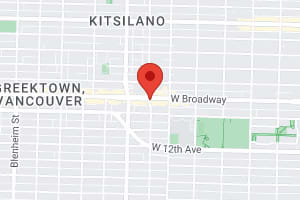
How we see Pear Tree School
Compare with:
How Pear Tree School sees itself
"Pear Tree School’s mission is to provide a complete, inclusive, and stimulating education that nurtures the intellectual, social, emotional, physical, and ethical development of every student. We aim to equip our students with the skills, knowledge, and values needed to lead fulfilling lives and make a positive impact on the world. By combining academic excellence with a whole-child approach, we strive to inspire and empower our students to be lifelong learners, critical thinkers, and responsible citizens."
"At Pear Tree School, we prioritize a well-rounded education, combining traditional subjects with real-world applications. Our approach, supported by Master's educators, fosters critical thinking, creativity, and vital 21st-century skills.
We emphasize environmental awareness, global citizenship, and personal well-being, ensuring students grow into confident, knowledgeable individuals.
Trust us to prepare your child for the future with a curriculum that’s both comprehensive and deeply engaging."
"At Pear Tree School, our mission to provide a holistic, inclusive education that prepares students for all life's aspects inherently involves trade-offs to maintain our core values and vision:
Personalization over Standardization:
We prioritize personalized learning that caters to student needs, which means we often eschew the one-size-fits-all approach dominant in traditional educational settings. This commitment promotes creativity and critical thinking over rote memorization.
Collaboration over Competition:
Unlike schools that emphasize competitive success as a benchmark for student achievement, Pear Tree encourages collaboration. We believe that cooperative learning helps build interpersonal skills and prepares students for real-world challenges.
Innovation over Tradition:
Our forward-thinking, innovative teaching methods sometimes comes at the expense of classical education models, but it equips our students with relevant skills, mindset and values for today’s dynamic world."
"SCHOOL YEAR:
2011/12 - Founding of Pear Tree Education (main organization)
2016/17 - Founding of Pear Tree School (K-7)
2020/21 - Expansion of Pear Tree School
2024/25 - Launch of Middle School Annex (expansion to grades 8-9)"
"Characteristics of Ideal Students:
Enthusiastic Learners: Students who are naturally curious and motivated to explore new ideas and concepts.
Collaborative Spirits: Those who excel in team settings and understand the value of learning from and contributing to the group.
Creative Thinkers: Individuals who enjoy thinking outside the box and applying their knowledge in innovative ways.
Adaptable and Resilient: Students who are not deterred by setbacks and are adaptable to various learning contexts.
Families Best Suited for Our School:
Value Holistic Development: Families who believe education should develop not just academic abilities but also social, emotional, and ethical skills.
Supportive of Innovation: Parents who value innovative teaching methods and a curriculum that incorporates technology and real-world applications.
Community-Oriented: Those who appreciate a strong, supportive community and the importance of building interpersonal relationships within the school setting."
"Pear Tree School's unique educational approach and philosophy mean that it isn't the perfect fit for every student or family. Our commitment to a holistic, integrated curriculum and a nurturing community environment sets us apart, but these same qualities might not align with the expectations or values of all families. Here are some conditions under which we might advise a family to consider other options:
1. Preference for Traditional Education Models (i.e. preference for rote memorization, textbooks)
2. High Value on Competitive Success
3. Expectation for Conventional Homework and Testing
4. Desire for a Specialization (e.g. STEM only) at K-12 Level
5. Preference for Less Parental Involvement
6. Desire for Name-Brand Prestige and 'Guaranteed' Entrance to Ivy League Universities
7. Prioritize Campus Size and Facilities Over Quality of Education"
"Families choose Pear Tree School over others primarily for its innovative approach to education that values and nurtures each student’s individual abilities within a holistic and integrated curriculum. Here are key reasons why families prefer our school:
1. Our 'Why' and Mission
2. Holistic Education Approach
3. Integrated Theme & Project-Based Learning
4. Personalized Learning Environment
5. Community and Values
6. Progressive and Future-Focused
Parents see Pear Tree not just as a school, but as a community that plays a pivotal role in developing competent, capable, and ethical individuals."
"Pear Tree School is recognized for its innovative and holistic approach to education, deeply resonating within our community and beyond as a pioneering institution that prepares students not just academically, but as well-rounded individuals poised to navigate and contribute positively to the modern world.
Public Image and Prominent Features of Pear Tree School:
1. Innovative Educational Practices
2. Holistic Development Focus
3. Community and Inclusivity
4. Progressive Learning Environment
5. Environmental and Social Awareness"
"Often overlooked, the core of Pear Tree School's success is The Pear Tree Method—an advanced, all-encompassing educational approach.
Unlike other schools, every teacher here utilizes this method, ensuring a unified, effective learning experience. Our approach isn’t just better; it’s meticulously designed to meet the evolving needs of modern youth.
It reflects our commitment to setting new standards for student outcomes by addressing every aspect of a child's development."
"Parents are often surprised by how deeply integrated our values are in every aspect of Pear Tree School, far beyond expectations. Unlike schools that only espouse values, we live them—comprehensively and daily.
What truly astonishes parents is our genuine whole-child approach, where every staff member contributes to each student's growth. Our unmatched Healthy Hot Lunch Program and diverse daily P.E. surpass expectations.
It's not just education; it's a community where values turn into action."
"Pear Tree School is continually evolving - on literally a weekly basis - to meet the needs of our students, families and our Mission.
1) Facility Upgrades
2) Introduction of a comprehensive Co-Curriculars program
3) Implementation of a mid-term report card
4) Expansion of Parent Workshops
5) Recruitment of an Associate Principal
6) Development of systems, processes and checklists to further standardize our approach schoolwide
7) Further enhancement of our rigorous teacher recruitment and pre-service training process"
"Over the next 5 years, we will have accomplished the following:
1) Completion of K-12 grade offering
2) Additional K-7 campuses around Vancouver (locations to be announced)
3) Launch of a dedicated Grade 8-12 facility"



At Connaught Park
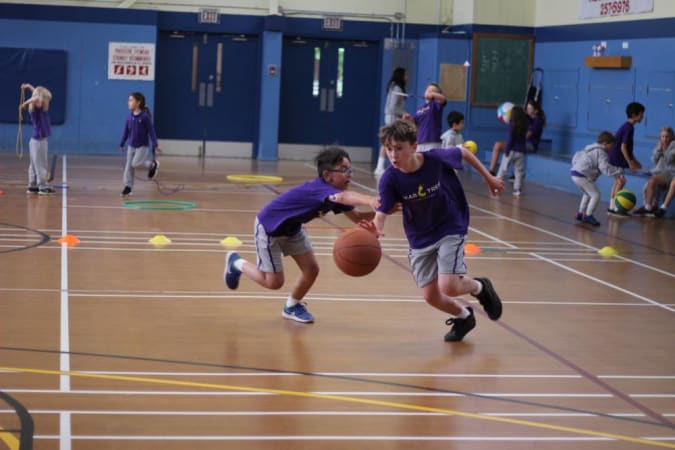
Kitsilano Community Centre

Yoga Studio @ Yoga Buttons




Our main reception area
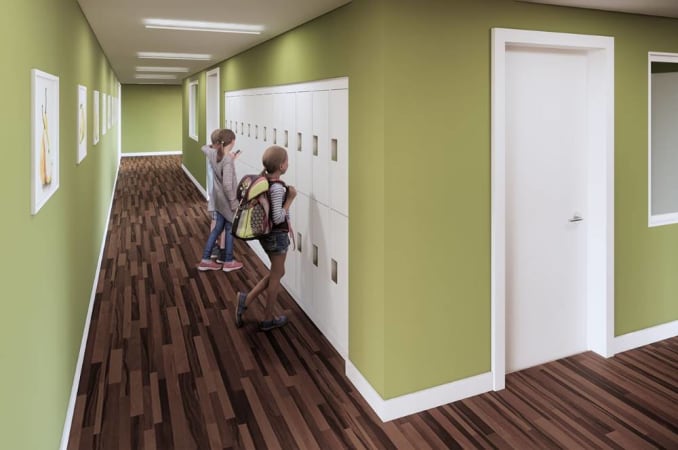
Lockers for every student
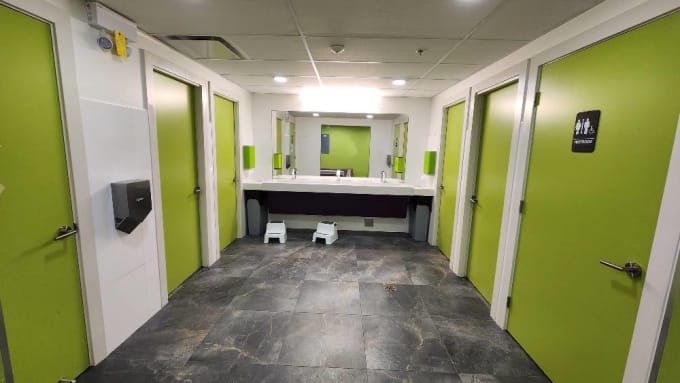
Clean, modern washrooms.



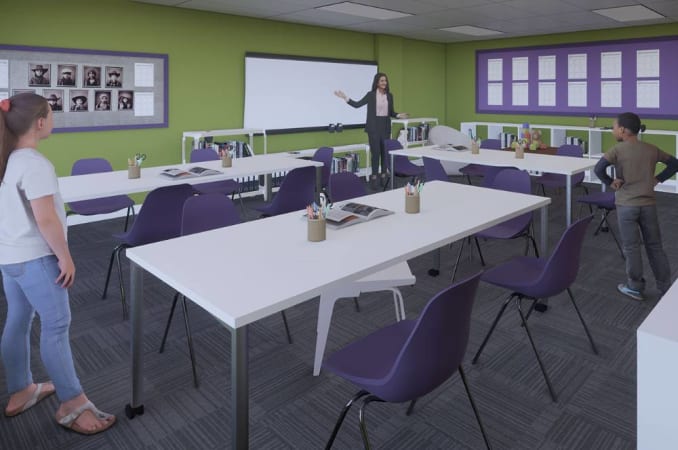





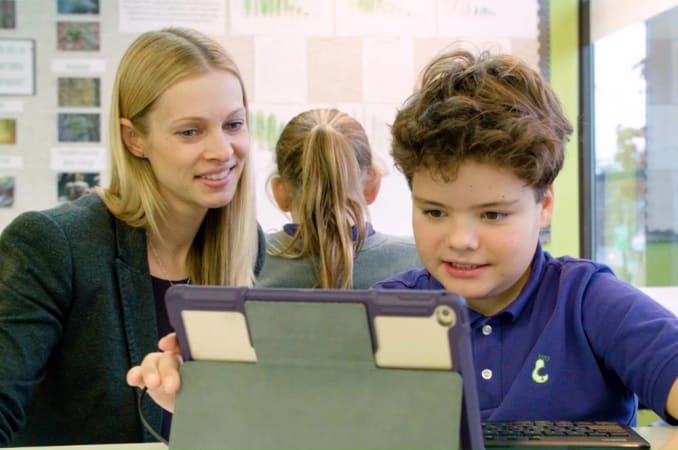
1-to-1 iPad program
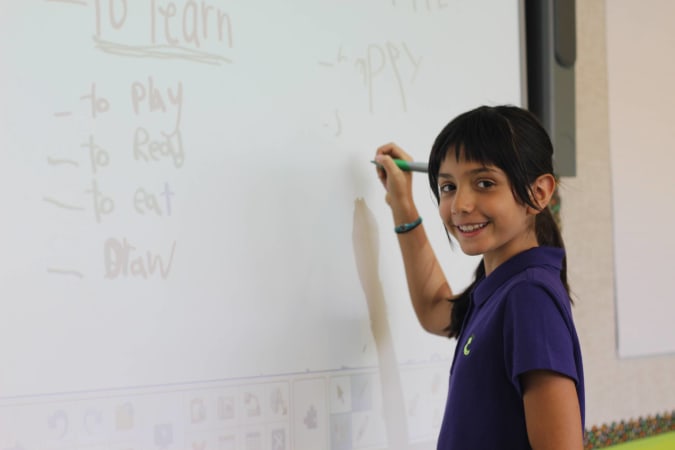
SMARTboards in every classroom
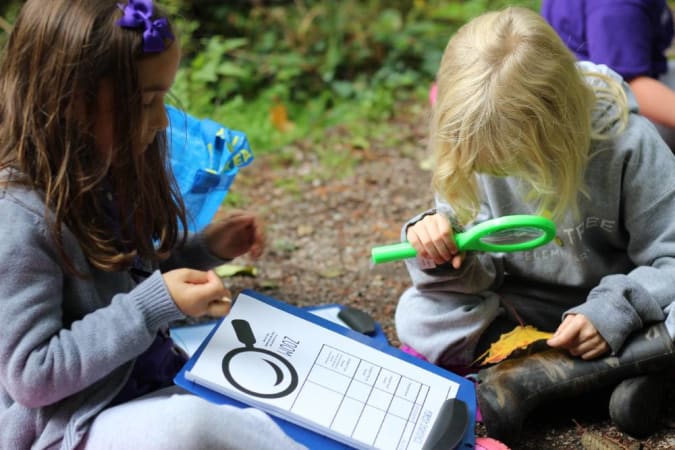
We use the environment around our school, which includes Pacific Spirit Park and the local beaches.




How people from the school’s community see Pear Tree School
Top-down influence on the school’s direction and tone

Alexis Birner, Principal
M.Ed. (Ed.D in progress)
A 'good school' isn't good enough. Children deserve the most complete, inclusive, and up-to-date form of education.
The traditional approach to teaching places students in homogeneous age groups. All twelve year olds in this room. All eight year olds in this room. They sit in desks facing the front and learn the core subjects one at a time for a set period of time each day. 45 minutes of math, followed by 60 minutes of English, followed by a short break, and then 45 minutes of science. Everything is compartmentalized and isolated.
This, quite frankly, has nothing to do with how we best learn.
That's why Pear Tree School is a different kind of private school.
Pear Tree School’s mission is to provide a complete, inclusive, and stimulating education that nurtures the intellectual, social, emotional, physical, and ethical development of every student.
We aim to equip our students with the skills, knowledge, and values needed to lead fulfilling lives and make a positive impact on the world.
Working in partnership with teachers, families, and the wider community, we strive to create a supportive and dynamic learning environment that encourages active participation, critical thinking, and personal growth.
By combining academic excellence with a whole-child approach, we strive to inspire and empower our students to be lifelong learners, critical thinkers, and responsible citizens.
We are dedicated to ongoing growth and evolution, both as individuals and as a school, in order to continuously provide an education that meets the changing needs of our students and prepares them for success in all aspects of life.
That’s Pear Tree School.
We invite you to experience the difference.
THE OUR KIDS REPORT: Pear Tree School
Next steps to continue your research:
Continue researching Pear Tree School with OurKids.net, or visit school website.